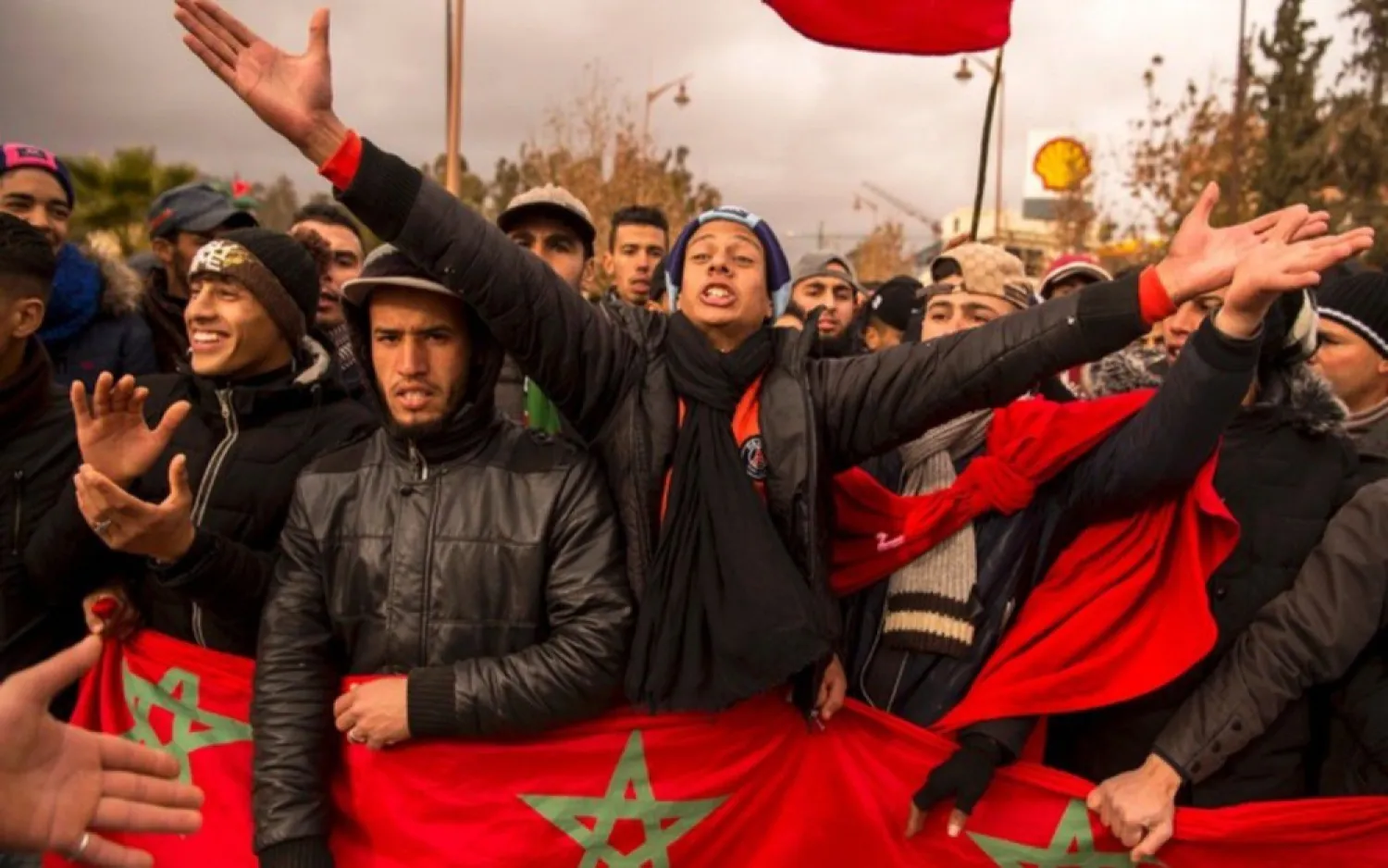Seven detainees were brought to trial on Monday over last week’s clashes between demonstrators and security forces in the city of Jerada in eastern Morocco.
They were among 26 other detainees suspected of being involved in violence after security forces intervened to break up a sit-in they planned to carry out in abandoned coal mines on the outskirts of the city on Wednesday.
The seven detainees stood before the judge of Oujdah’s Appeal Court and were charged with "incitement to commit crimes and felonies, armed gatherings, participation in organizing an unauthorized demonstration, possession of weapons and obstruction of traffic,” said Abdelhak Bankadi, one of the defense lawyers.
The second trial session of three activists arrested before Wednesday’s incident was also held on Monday.
Mustafa Adanin, Ameen Amqalesh and Aziz Bou Dshish are charged with "insulting and committing violent acts against public officials, attempting to smuggle and help a wanted person escape arrest and driving under the influence of alcohol.”
The local committee to support the Jerada movement in Oujdah organized on Monday morning a protest in front of the Justice Palace to show solidarity with the detainees amid a heavy security presence.
The residents, who staged protests three months ago, are demanding an "economic alternative" in the region after the large local coal mine was shut down in 1998 The mine had employed thousands of workers.
They also demanded holding corrupt officials accountable and providing water and electricity for free.
In a related matter, Amnesty International called on Moroccan police to stop using "excessive force" and intimidating peaceful protesters following the incidents in the Jerada demonstrations.
“The authorities must allow peaceful protest by prioritizing the safety of protesters. People should be free to exercise their rights to freedom of expression and peaceful assembly and security forces should never be allowed to use excessive force against protesters,” said Heba Morayef, Amnesty International’s Regional Director for the Middle East and North Africa.
“These protests are happening in response to genuine economic hardship. The role of the police should be to protect the citizens and calm this tense situation, not further inflame it. The fact that a protest was not explicitly authorized is not a justification for the use of excessive force,” she stressed in a statement.









